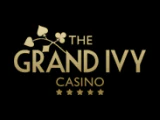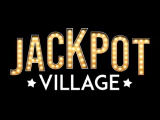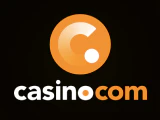Hydrofoils from Hong-Kong depart for the island of Macau every day of the year, every hour of the day, every fifteen minutes. The ride across the south china sea is remarkably smooth and pleasantly scenic. But the hundreds of passengers who take this train-on-the-water aren’t interested in the craggy shoreline or lumbering fishing boats the hydrofoil leaves in its wake. Like children in the back seat of the family station wagon, they just want to get there.
Because Macau, a Portuguese protectorate that was handed back to China in 1999, has something you can’t find in Hong Kong: casinos. These are not genteel European parlours, or spacious, American-style ballrooms, fitted with plush carpets and ersatz chandeliers.
They’re gambling factories. A few of the island’s eight casinos are the size of a decent Wal-Mart — and most have about as many “shoppers”. Even on an otherwise tranquil Sunday afternoon, the casinos of Macau are easily the most crowded gambling joints you’ve ever seen, with bettors three and four deep at every table, elbowing their countrymen aside to get some money on the sacred green felt. An uninitiated visitor might presume the casinos had some sort of generous promotion in force — blackjack pays 2-1, perhaps — or that they had momentarily lost their finely calibrated sense of larceny and were simply giving away money. But closer inspection reveals the action at the tables is merely business as usual. The thousands of patrons clamouring to get their bets down just really like to gamble.
That is to say, they really like to gamble. The casinos of Macau are easily the most animated wagering palaces you’ve ever seen. On hands of chemin de fer (known as “baccarat” along Las Vegas Boulevard), opposing sides shout friendly curses at each other in Cantonese, trying vainly to change the spots on a fateful card. Applause and groaning accompany the outcome of each hand; and it’s not polite, routine-par-on-the-PGA-Tour applause,
or mock, I-didn’t-really-need-that-money groaning, either. This is the real stuff. The actors in Macau’s quotidian drama emote so convincingly because they really do care profoundly about every hand. Which is understandable, since most bets here seem to represent a sizeable portion of the protagonists’ life savings.
The minimum wager at most tables is $15-25. But nobody bets the minimum. Even young men, very young men, in their late teens maybe, who proudly wear “American Original Playboy Spirit” windbreakers and have cultivated something resembling a moustache above their tender lips — even these lads wager sums that would make the typical Vegas high-roller feel like a candidate for the all-you-can-eat buffet line. The prevailing thinking among the gamblers here seems to be, “Small is bad; big is good.” The nearer your wager to the House maximum (US$100,000 in the “VIP” rooms), the nearer, it seems, to Nirvana. Even the chips, laminated plastic discs the size of your kitchen sink drain, are big.
This compulsion to plunge it all away on the bounce of a ball or the turn of a domino, according to several residents of Hong Kong, can be explained as an obscure symptom of the city’s absurd real estate market. One young professional, a bond trader who pays over $100,000 a year in rent for his high-rise apartment, says, “Even if you have a decent job, you can’t afford to ever buy a decent apartment. So you gamble. In Hong Kong, you have to gamble if you want to keep up.”
Then there’s the no-nonsense point-of-view. “We Chinese, we just love to gamble,” says Tony Liu, Vice President of Oriental Marketing at the Trump Taj Mahal, in Atlantic City. “Win or lose, we don’t care. We just love to play. And as long as we have some money in front of us, we won’t stop.”
Though most ethnic generalisations are about as trustworthy as loaded dice, anyone 44 in the gaming business will tell you there’s no more “dedicated” player than the Chinese. Indeed, most Chinese gamblers will tell you the same thing. “We’re born to gamble,” says Danny, a “dedicated” gambler who works in management at a Hong Kong hotel. “Chinese don’t fool around. We come to win, to make a big score. It’s in our blood.”
According to Larry Clark, the Taj Mahal’s Executive Vice President of Casino Operations, whose Dragon Room caters to high-rolling Asians, casinos across America would love to capture even a small slice of the Oriental market. Outside of California, where special Asian games sections draw concert-size crowds, the Taj’s Dragon Room is among the largest Asian gambling arenas outside of Asia. “I was inspired by the Asian games I had seen in Macau, and I wanted to recreate the atmosphere of excitement and mystique,” Clark says.
In one respect he’s been hugely successful. The Dragon Room, like its antecedents in Macau, is always packed. On a typical weekend night — or early morning — every seat at every table is occupied, with a sizeable crowd waiting for space to become available. Not surprisingly, Tony Liu, the marketer, says he has over 20,000 names on his database of invited guests.
Fifteen times a year the Taj puts on Asian-themed shows in their convention centre showroom, featuring the Madonnas and Tony Bennetts of China, Vietnam, and The Philippines. These extravaganzas, which consistently attract audiences of 4,000, usually don’t begin until 2am, when most Atlantic City revellers are contemplating the charms of a final cognac and a down pillow. Tony Liu explains, “Many of our customers close their shops and restaurants around ten or eleven. We have to give them time to drive here.”
There are, of course, other stylistic differences between Occidental and Oriental bettors. Most Western gamblers like the casino’s complimentary booze; Asian gamblers prefer coffee. Most Westerners are mildly health conscious; players in the casinos of Macau (and the casinos that would imitate them) smoke like overheated engines. Most Westerners play for three or four hours at a stretch; Hong Kongers in Macau bet for up to 48 hours straight — or until they’ve gone bust. Westerners generally like slots and craps and blackjack; the Chinese players love an inscrutable domino game called Pai Gow. If a Westerner has $20,000 to his name, he might be willing to play with $5,000 of it (and that’s if he’s a wild man); if a Chinese fellow has $20,000 to his name, he’ll bet at least that much, and more if he’s got a good line of credit.
“There are no bigger gamblers than the Chinese,” Larry Clark says. “Any culture with a Judeo-Christian background, gambling has a stigma. With the Chinese, it’s accepted. It’s a way of life.”
Nothing illustrates Clark’s assertion better than a visit to the Happy Valley racetrack, wedged surreally beneath a field of skyscrapers, in the heart of Hong Kong. A typical Wednesday night of horse racing draws close to 50,000 screaming patrons; weekend programmes at the Sha Tin complex, in a nearby suburb, draw as many as 90,000 spectators. And they’re not just watching the ponies run around in circles. In 1997, the Hong Kong Jockey Club, which manages the racetracks, handled over HK$93 billion in wagers.
That’s about US$12 billion.
According to Henry Chan, the Jockey Club’s Director of Betting, “Horse racing is a way of life for us. It’s entertainment and it’s a sport. But even more, it’s like an art. Chinese people love to study the forms, to handicap the races. It’s really our national sport.”
As the only legalised form of gambling in Hong Kong beside a national lottery, the racetracks are highly regulated — and, of course, highly profitable. (Hong Kong’s one-day betting record is currently US$326,810,000.) Each year the Jockey Club donates HK$1-2 billion to the community. Proceeds from horse racing helped build the Hong Kong University of Science and Technology, the Castle Peak Hospital and the Hong Kong Football Stadium. In fact, the Hong Kong Jockey Club is among the top-ten charitable foundations in the world.
This becomes possible when, in a country with a total population of 6 million, 750,000 people have telephone betting accounts and one million people bet each race day at one of 125 off-course outlets.
Given this kind of nationwide equine fervour, casino gambling, Chan says, is hardly necessary. “The government doesn’t want to encourage additional gambling in Hong Kong. We wish Macau was even farther away,” he says, laughing.
The Chinese cultural stereotype — highly superstitious, fascinated by the concept of luck — may have some truth to it, Chan concedes. “But horses are a game of skill. And besides,” Chan adds, “Chinese don’t see betting on horses as ‘gambling.’ It’s playing. We work hard and we play hard. Here in Hong Kong, we have small homes and little leisure time. A day at the races is a most civilised relief from our hectic life.”
Millions of other residents of this bustling, frenetic city, find their escape across the water, far from the exactas and quinellas of Happy Valley. They go to Macau, where a burgeoning fortune is only a turn of a card away. Many of the games in the casinos here are difficult for Western eyes to decipher. Some, like Pai Gow, are played with dominoes, which the locals slap, fondle and, when they really need a winner, caress like small birds, reading the dots with their fingers instead of their eyes. Others, like Dai-Siu, employ dice, and players bet if the total of three dice will be “big” or “small.” The odds, you can be sure, are skewed worse than the prop bets on a crap table, not that anyone in Macau seems to mind terribly.
The most peculiar of these casino games is called Fan Tan, an ancient Chinese diversion made modern by the presence of croupiers, pit bosses and hordes of eager gamblers. The dealer covers a large pile of porcelain buttons with a silver cup, pushes the shrouded pile toward the center of the table and removes the cover, like a waiter in a classical French restaurant. He then divides the pile of buttons into groups of four. Players bet if, after the division, there will be 0, 1, 2 or 3 remaining buttons.
Much frivolity is enjoyed by all. Especially the studious types, who keep dense, detailed charts of the results, which, they suppose, help divine a pattern in the sublime randomness of the button pile.
Whereas most casinos in America are wall-to-wall slot machines, Macau has few of what the Chinese call “hungry tigers” lining the walls, like so many forlorn afterthoughts. The handful of video poker machines are even lonelier and for good reason. Most gamblers here have no concept of “basic strategy”, and even if they did it would do them no good. The pay tables are laughable — six coins for a full house, five for a flush — and most machines have a “war” feature that encourages players to double their winnings by challenging the machine to a game of “high-card-wins”. This being Macau, most players gladly do battle until they blithely convert their profits into nothing.
Blackjack games are rare. On a recent visit, the Casino Jai Alai, a warehouse-size emporium near the ferry terminal, had one blackjack table. The Mandarin Oriental had two. The rules are surprisingly good — dealer stands on soft-17; surrender available against a dealer “10” — but card-counting is ineffectual since the dealer burns a card on every hand, and three of the eight decks in play get “cut-off”, drastically reducing penetration.
Not that professional card counters would want to ply their trade here, anyway. The casinos of Macau, operated under a government franchise by the Sociedade de Turismo e Diversoes de Macau, are controlled by a man named Stanley Ho, who, it is widely rumoured in both Hong Kong and the States, has intimate relationships with some unsavory characters. “The last place you would want to try anything clever is Macau,” one professional blackjack player, based in Nevada, says. “Ho is richer than God, and almost as powerful.”
White-skinned gamblers, do, in fact, stand out from the crowd, if only because of sheer novelty. Most of the Chinese gamblers, taping their chips into tidy stacks before firing $20,000 bets off on a hand of baccarat, are too busy tempting fate (and bad odds) to pay attention to a stray “ghost”. At Casino Lisboa, a four-story gambling emporium with higher limits the farther up you ride the escalator, the only denizens of the place that seem interested in Western visitors are dozens of hookers, who have mastered the rudiments of roulette, as well as the English phrases “happy time” and “go to my room”.
The pungently charged atmosphere in Macau is redolent of the “old” Vegas: fast money, fast women, reality blurred by the intoxicating clatter of chips and dice and dominoes. But lest a daydreaming visitor imagine he’s been magically transported to Nevada, back when gangsters called the shots and hedonism flowed as freely as wine at a Bacchanal, signs posted on the casino’s walls announce in certain terms that this isn’t the Flamingo, circa 1946, but a wild, gambling-drunk island off the coast of China. In three languages they say: “Please do not spit on the floor.”








